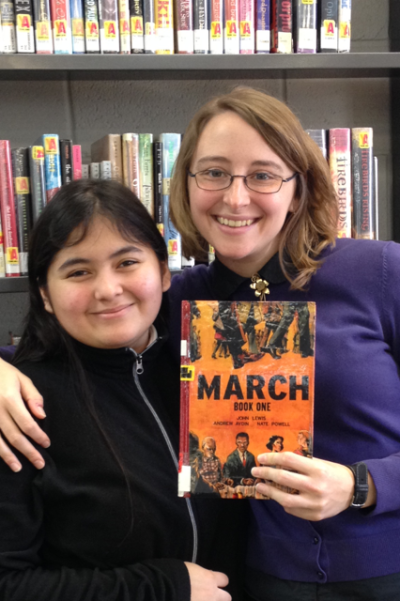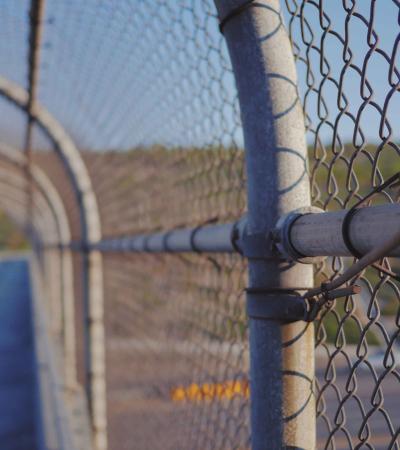ALA is now accepting applications for the Great Stories Club, a grant program in which library workers lead reading and discussion programs with underserved teens in their communities.
Read the project guidelines and apply online. Applications are due July 9. Up to 150 grants will be awarded.

Program details and eligibility
Working with small groups of approximately 10 teens, grantees will host reading and discussion programs for up to four thematically related books. The titles — selected in consultation with librarian advisors and humanities scholars — are chosen to resonate with reluctant readers struggling with complex issues like academic probation, detention, incarceration, violence and poverty.
All types of libraries are eligible, as long as they work in partnership with, or are located within, organizations that serve under-resourced youth, such as alternative high schools, juvenile justice organizations, homeless shelters, foster care agencies, teen parenting programs, residential treatment facilities and other nonprofit and community agencies. (Read an account of a former Great Stories Club grantee about her partnership with a juvenile detention center.)
Libraries located in high-poverty communities are also eligible to apply, though outreach partnerships with youth-focused organizations are still encouraged.
Themes and titles
Participating libraries may choose to work with one or both of the following themes during a 12-month programming period (September 2018 – August 2019): “Empathy: The Cost of Switching Sides” and “What Makes a Hero? Self, Society and Rising to the Occasion.”
“Empathy: The Cost of Switching Sides” will feature the following titles, from which libraries may select up to four
- “Flight” by Sherman Alexie (Read ALA’s statement about the use of “Flight” for this project.)
- “Kindred: A Graphic Novel Adaptation” by Octavia Butler, Damian Duffy and John Jennings
- “All American Boys” by Jason Reynolds and Brendan Kiely
- “Stuck in Neutral” by Terry Trueman
- “March: Book Three” by John Lewis, Andrew Aydin and Nate Powell
“What Makes a Hero? Self, Society and Rising to the Occasion” will feature the following titles, from which libraries may select up to four:
- “Black Panther: A Nation Under Our Feet, Book 1” by Ta-Nehisi Coates and Brian Stelfreeze
- “Maus II: A Survivor’s Tale: And Here My Troubles Began” by Art Spiegelman
- “Binti” by Nnedi Okorafor
- “Code Talker: A Novel About the Navajo Marines of World War Two” by Joseph Bruchac
- “What Can(t) Wait” by Ashley Hope Pérez
- "Buck: A Memoir" by M.K. Asante
Grantee benefits
Grantees will receive:
- 11 paperback copies of up to four book selections (10 to gift to participants; 1 for discussion leader/library collection)
- Travel and accommodation expenses paid for one staff member to attend a 1 ½-day project orientation workshop in Chicago (libraries selected to implement both Great Stories Club series may be assigned to attend only one workshop)
- Programming materials, including discussion guides, related reading lists and promotional resources
For more information
Potential applicants may sign up for a free webinar to learn more about this opportunity. The webinar will be held at 1 p.m. Central Time on Monday, May 21. Reserve a spot for the webinar.
The Great Stories Club National Advisors are Allyson Dowds, Youth Technology Librarian for Teen Central at the Boston Public Library; Anna Mae Duane, Associate Professor of English at the University of Connecticut; Jennifer Mann, Professional Librarian at Washtenaw Community College; and Maria Sachiko Cecire, Director of Experimental Humanities and Assistant Professor of Literature at Bard College.
The Great Stories Club has been made possible in part by a major grant from the National Endowment for the Humanities. The grant will be administered by ALA’s Public Programs Office.


